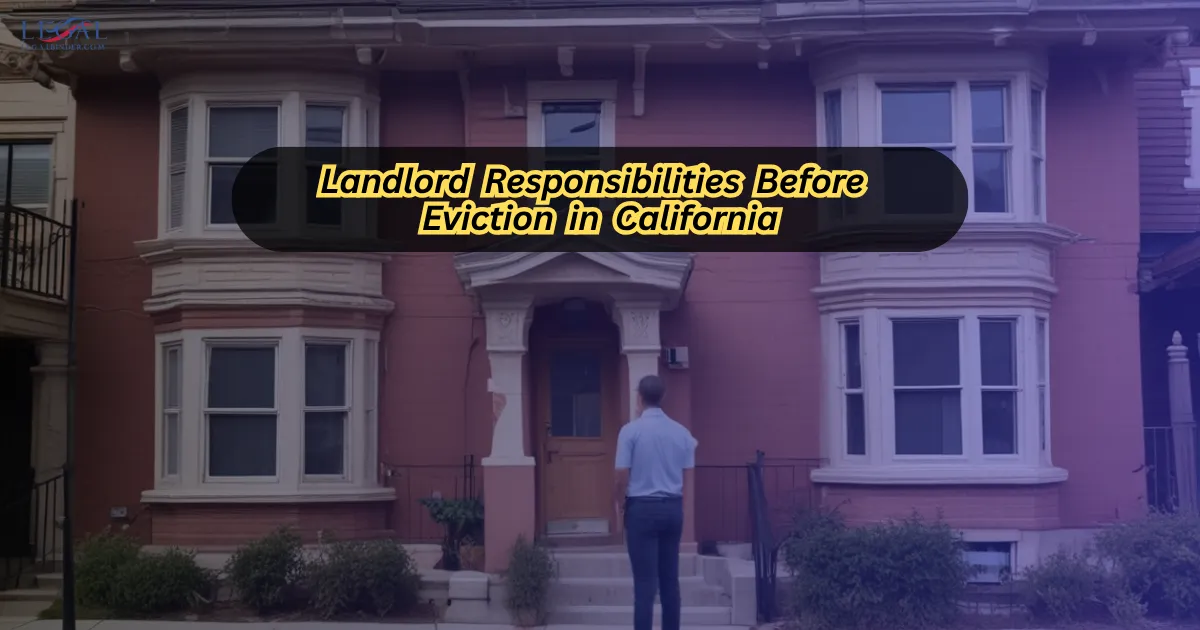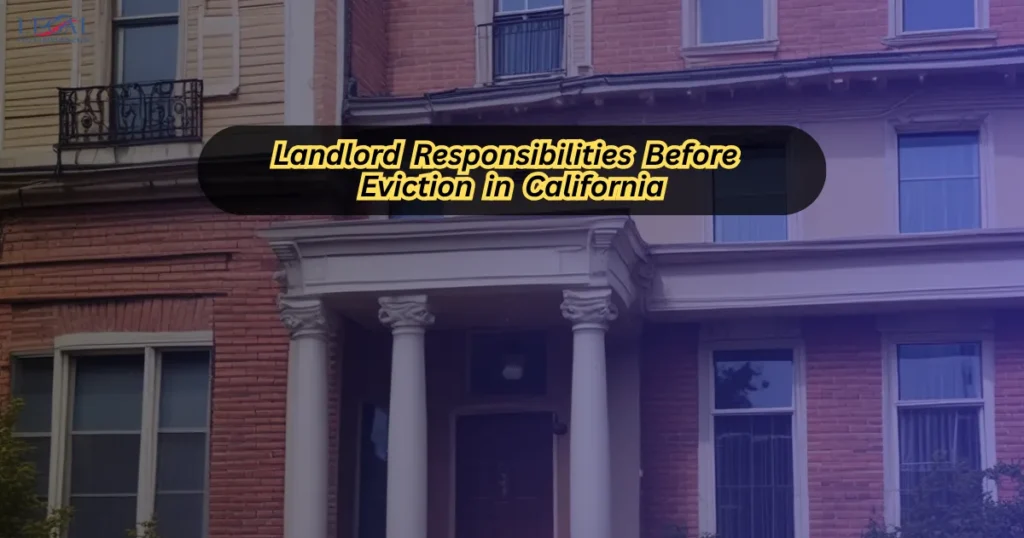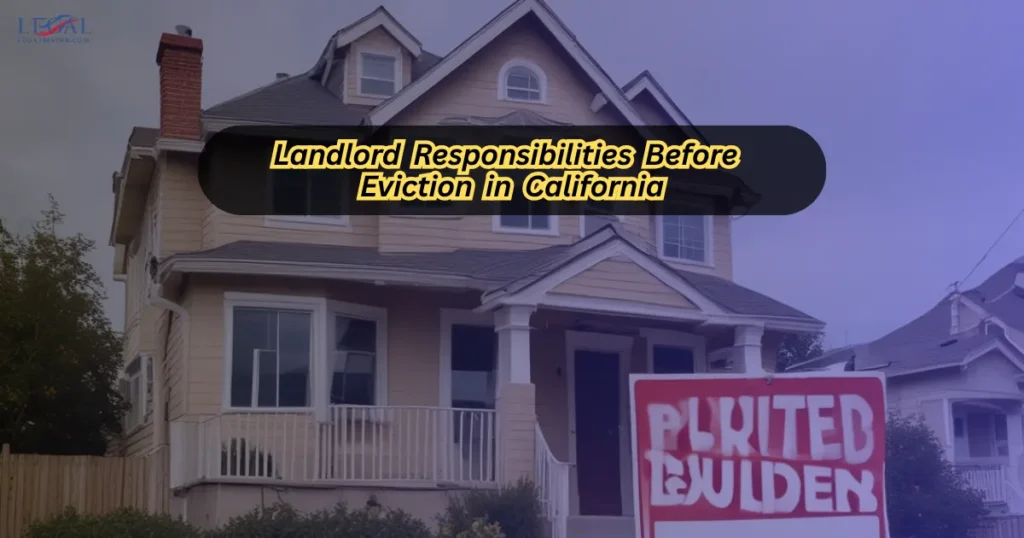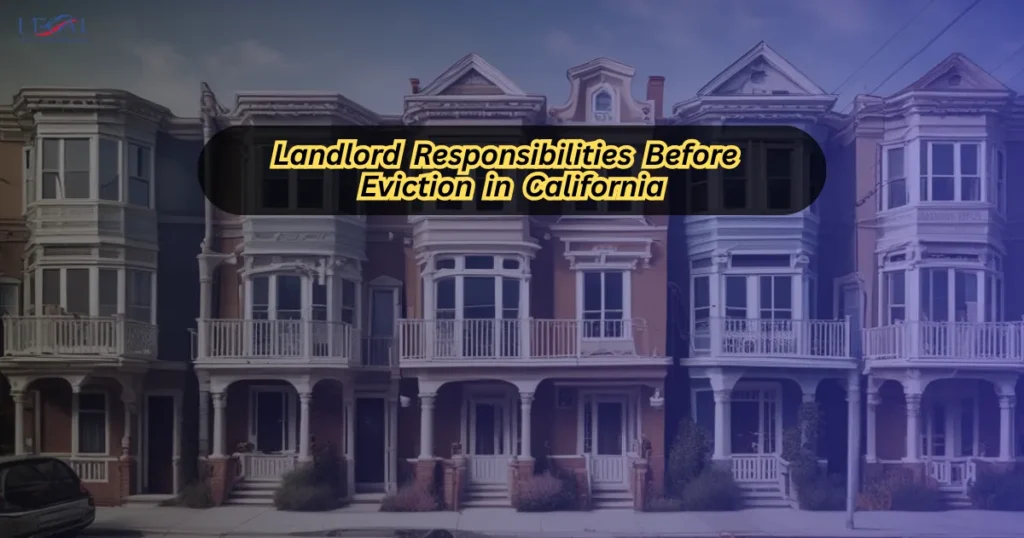Physical Address
304 North Cardinal St.
Dorchester Center, MA 02124
Physical Address
304 North Cardinal St.
Dorchester Center, MA 02124

Landlord responsibilities before eviction in California are critical to understand if you want to protect your rights, remain compliant with state laws, and avoid costly legal battles. California has some of the strongest tenant protection laws in the nation, and missing a single legal step can derail the eviction process, waste months in court, and even lead to financial penalties.

Imagine this: you’ve dealt with repeated lease violations or months of unpaid rent. You decide it’s time to evict, but the court sends your case back because the notice wasn’t served correctly or you skipped a required disclosure. That gut-punch moment can be avoided when you know exactly what your responsibilities are before moving forward with eviction. This guide walks you through each legal obligation, how to fulfil them correctly, and best practices to help you achieve a fair and lawful resolution.
For more landlord-tenant legal resources and eviction templates, visit our homepage or explore our California Eviction Law Resource Hub.
California evictions are governed by the California Civil Code, the Code of Civil Procedure, and in many areas, local rent control ordinances. Landlords must comply with state and local regulations before eviction can begin.

Ensure the lease terms support your reason for eviction.
This is a critical legal requirement—use attorney-reviewed forms.
Give the tenant the full statutory time to pay rent or fix violations.
Copies of notices, receipts, and service proof are vital for court.
Do I need a reason to evict a tenant in California?In many areas, “just cause” is required, especially under rent control rules.What if the tenant fixes the issue during the notice period?You cannot proceed with eviction for that issue.Can I evict a tenant immediately for illegal activity?Yes, certain serious breaches allow an Unconditional Quit Notice.What happens if I skip required repairs before eviction?It can be considered retaliatory eviction and dismissed by the court.

Meeting your landlord responsibilities before eviction in California is essential for a legal and fair process. By serving the correct notice, respecting tenant rights, and complying with all state and local requirements, you reduce the risk of costly delays or wrongful eviction claims.
Eviction should be the last resort—effective communication and proper documentation can often resolve tenant issues without going to court.
For more California eviction law guidance and landlord compliance resources, visit our home page today.